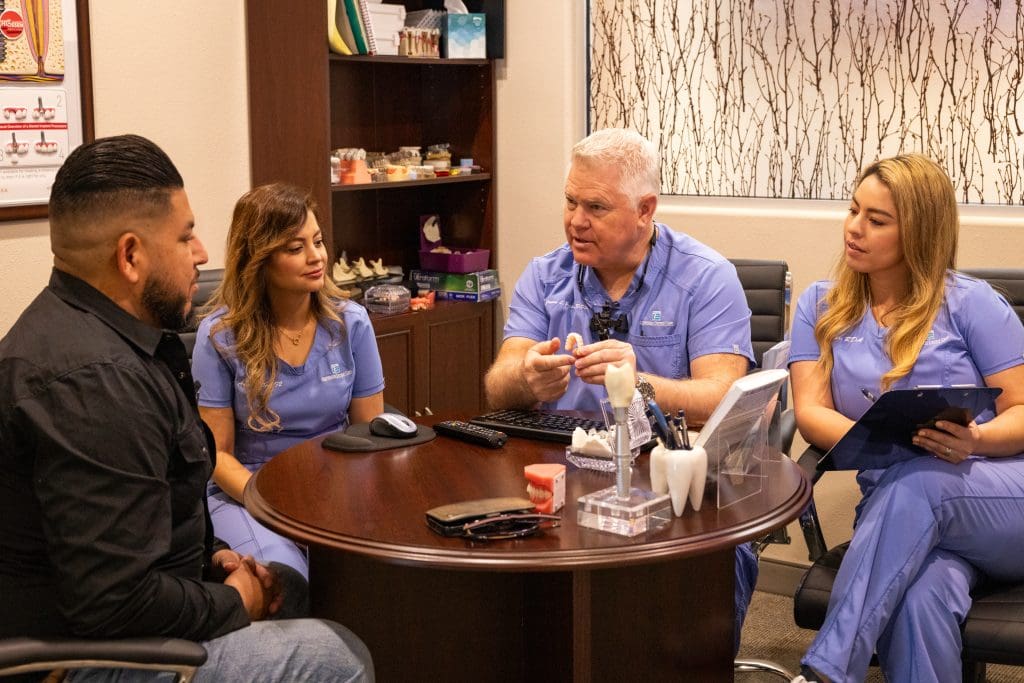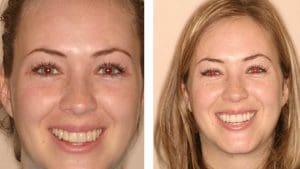Welcome to Eggleston Dental Care, where Dr. Jim Eggleston and his skilled team provide high-quality dental services in Turlock, California. Our practice offers a wide range of treatments, including dental sealants, to help protect and strengthen your teeth. If you need a trusted Turlock dentist, call us at 209-634-5871 or visit Eggleston Dental Care to learn more.
Benefits of Dental Sealants
Dental sealants are an effective solution to prevent decay on teeth prone to cavities. They consist of a thin, plastic coating applied to the chewing surfaces of the back teeth. This creates a protective barrier that blocks food particles and bacteria, reducing the risk of decay. Dental sealants are particularly beneficial for adults with deep grooves in their teeth, which are more susceptible to decay. They offer a safe and cost-effective way to maintain dental health, potentially reducing the need for fillings or crowns.
Quick and Lasting Protection
Applying dental sealants is a quick and painless process. Once applied, sealants can last up to 10 years with proper care. They’re non-invasive and don’t require anesthetic, making them an accessible choice for many patients. Sealants provide a simple yet effective way to protect teeth from decay, ultimately helping to reduce future dental expenses.
Types of Dental Sealants
Eggleston Dental Care offers a variety of sealants to suit different needs. We provide both traditional and advanced options, such as resin-based and glass ionomer sealants. Traditional sealants are durable and prevent cavities for up to five years, while advanced resin-based and glass ionomer sealants can last up to 10 years and offer added durability. Our experienced dentists will recommend the best type of sealant for your needs, ensuring optimal protection.
How Dental Sealants Are Applied
The process of applying dental sealants is straightforward and can be completed in a single visit. First, the dentist cleans and dries the teeth. The sealant material is then painted onto the tooth surface, where it is hardened with a special light. This creates a protective shield against bacteria and plaque, safeguarding your teeth from cavities for years to come.
Who Should Consider Dental Sealants?
Dental sealants are an excellent option for adults prone to cavities or with deep grooves in their teeth. They offer an extra layer of defense against decay, making them a valuable preventive measure. Sealants are a simple, painless solution for long-term dental protection, helping you maintain a healthy smile.
Cost of Dental Sealants
The cost of dental sealants typically ranges from $30 to $60 per tooth. Some dentists offer discounts for sealing multiple teeth, and insurance may cover part or all of the expense. It’s always a good idea to check with your insurance provider and ask your dentist about any available offers.
Book Your Turlock Dental Sealants Appointment!
To learn more about dental sealants or to schedule an appointment, visit Eggleston Dental Care or call us at 209-364-0153 today. Protect your teeth with the expert care and personalized service Eggleston Dental Care is known for.
FAQs
What is a dental sealant?
A dental sealant is a thin, plastic-like coating that is applied to the chewing surfaces of your back teeth, particularly the molars and premolars. These areas are more prone to decay due to their grooves and pits, which can trap food particles and bacteria. The sealant acts as a protective barrier, preventing these particles from settling in and causing cavities. This simple preventive measure can help protect your teeth from decay for years to come.
Who can benefit from dental sealants?
Dental sealants are beneficial for individuals of all ages, but they are particularly recommended for children and teens as soon as their permanent molars come in. Adults can also benefit, especially if they have a history of cavities or deep grooves in their back teeth. These grooves can be challenging to clean thoroughly, even with good brushing habits, so a sealant provides added protection. Additionally, individuals with certain dental conditions that increase their risk of decay may also find sealants beneficial.
How long do dental sealants last?
With proper care, dental sealants can last anywhere from 5 to 10 years. They are durable, but like any dental treatment, they can wear down over time due to normal chewing and grinding. Regular dental check-ups are essential to monitor the condition of your sealants. If they become worn or damaged, your dentist can repair or replace them as needed. Good oral hygiene, including brushing, flossing, and avoiding hard foods, can also help prolong the lifespan of your sealants.
Are dental sealants safe?
Yes, dental sealants are considered very safe and have been widely used for decades. They are made from materials that are biocompatible and safe for use in the mouth. Most sealants contain a small amount of BPA, but it is in such a low amount that it poses no known health risk. The American Dental Association and the FDA have both approved dental sealants as a safe and effective treatment for cavity prevention. Additionally, sealants are non-invasive and do not require any drilling or anesthesia, making them a safe option for patients of all ages.
How much do dental sealants cost?
The cost of dental sealants can vary depending on factors like the type of sealant material used, the dentist’s location, and the number of teeth being treated. On average, sealants cost between $30 and $60 per tooth. Many dental insurance plans cover part or all of the cost of sealants for children, and some may extend this coverage to adults as well. If you are concerned about the cost, ask your dental office if they offer any discounts for multiple teeth or payment plans. Investing in sealants can save money in the long run by reducing the need for more extensive dental treatments like fillings and crowns.
What are the different types of dental sealants?
There are primarily two types of dental sealants: resin-based sealants and glass ionomer sealants. Resin-based sealants are commonly used and are highly durable, making them a popular choice for most patients. They bond well to the enamel and provide long-lasting protection. Glass ionomer sealants, on the other hand, release fluoride over time, which helps strengthen the tooth enamel and provide additional protection against decay. These are often recommended for patients who are at a higher risk of cavities. Both types of sealants are effective, and your dentist can recommend the best option based on your individual needs.
Is the application of dental sealants painful?
No, the application of dental sealants is a painless process. It does not require any drilling or anesthesia. The procedure involves cleaning the teeth, applying an acidic gel to prepare the surface, and then rinsing and drying before placing the sealant. The sealant is then hardened with a special light, creating a protective barrier. The entire process is quick and comfortable, making it suitable for both children and adults. After the sealant is applied, you can resume your normal activities without any restrictions.
How should I care for my dental sealants?
Caring for your dental sealants is straightforward. Maintain good oral hygiene by brushing twice a day with fluoride toothpaste, flossing daily, and visiting your dentist regularly for check-ups. Avoid chewing on hard objects, like ice or pens, which can wear down the sealants. During your dental visits, your dentist will check the condition of the sealants and reapply them if necessary. Proper care can help extend the life of your sealants, ensuring that they continue to protect your teeth from decay.
Can dental sealants be applied to teeth with existing cavities?
Dental sealants are generally applied to healthy teeth as a preventive measure against decay. However, in some cases, sealants can be used on teeth with very early signs of decay, as long as the decay has not reached the dentin (the deeper layer of the tooth). The sealant can help stop the decay from progressing by sealing off the affected area from further exposure to bacteria and food particles. Your dentist will assess the condition of your teeth to determine if sealants are appropriate in your situation.









